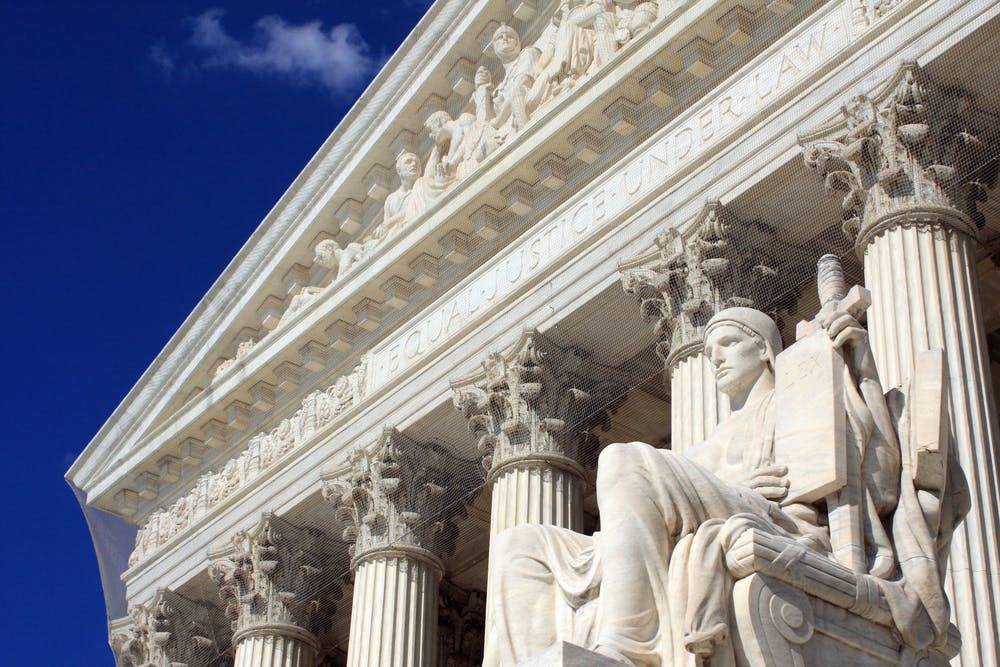By Sarah J. Moore
In a deadlocked 4-4 decision, the U.S. Supreme Court could not reach a majority consensus in determining whether it is unconstitutional for states to force public sector employees to pay agency shop fees to their unions.
For approximately 10 million public sector employees in states mandating agency shop fees, this means they must continue to pay a fair share fee to their unions in order to remain employed.
This decision preserves an important revenue stream for public sector unions, and deals a blow to those who had hoped to lessen labor’s influence in public employment settings and beyond. See Friedrichs v. California Teachers Association.
Case Have changed landscape of the labor movement
Various legal and industry leaders anticipated that by accepting this case for review, the Supreme Court intended to overturn its 1977 decision in Abood v. Detroit Board of Education. That decision held that public employees who choose not to join a union can still be compelled to pay a service fee to finance union collective bargaining, contract administration, or grievance adjustment expenditures.
While the decision also said that such workers are protected under the First Amendment from being compelled to contribute to union political activities they oppose, the decision still permitted a large source of revenue for public sector unions.
Opponents of these mandatory fees believed that the time was right to challenge this system, seeing a number of encouraging signs in other Supreme Court decisions over the past decade. And with five conservative Supreme Court Justices on the bench seemingly ready to strike down Abood and hand them a victory, it seemed that public sector unions were about to be dealt a crippling blow.
During oral argument in January 2016, the Court’s questioning suggested that the five-Justice conservative bloc was leaning towards striking down public sector agency shop arrangements on First Amendment grounds. Specifically, there was continued focus on whether compelling association through fair share fees was constitutionally justified.
Justice Scalia’s untimely death altered the playing field
All of that changed with Justice Antonin Scalia’s death in February 2016.
As described more fully here, the absence of a ninth Supreme Court Justice can lead to a deadlocked 4-4 vote among the remaining members. When that happens, the resulting decision will affirm the lower court’s decision, and the state of the law will remain status quo. In this case, the lower case below was a 2014 victory for public sector unions at the San Francisco-based 9th U.S. Circuit Court of Appeals.
On Tuesday, the High Court issued a one-sentence per curiam decision in the Friedrichs case upholding the 9th Circuit’s decision, simply stating:
The judgment is affirmed by an equally divided Court.”
While it seems likely that the compelled agency shop fee system would have been struck down had Justice Scalia been alive to cast a deciding ninth vote, many of the nation’s public sector employees are stuck paying forced fees for the foreseeable future.
What this means for the labor movement
Because the Supreme Court could not muster a majority of votes that would have disturbed the valuable revenue stream enjoyed by public sector unions in agency shop states, the labor movement is breathing a collective sigh of relief.
No doubt many public sector unions have shelved the contingency reduction-in-force and operational restructuring plans they had created in preparation for an adverse ruling that seemed likely prior to Justice Scalia’s death.
While it is possible that the Court will accept a case with similar issues for review in the future once a full complement of nine Justices have been restored to the bench, until that day, the status quo remains. Public sector unions will continue to fill their coffers with these mandatory fees and will continue to robustly lobby for a pro-union agenda in Congress and in state legislatures across the country.
At this point, no response or follow-up action is required from public sector employers.
In fact, public sector employers would be wise to not comment to union leaders or speak publicly regarding today’s decision. Any statements could be misconstrued and used against you if you are currently in negotiations or dealing with some level of union unrest.
This was originally published as a Fisher & Phillips Legal Alert.
